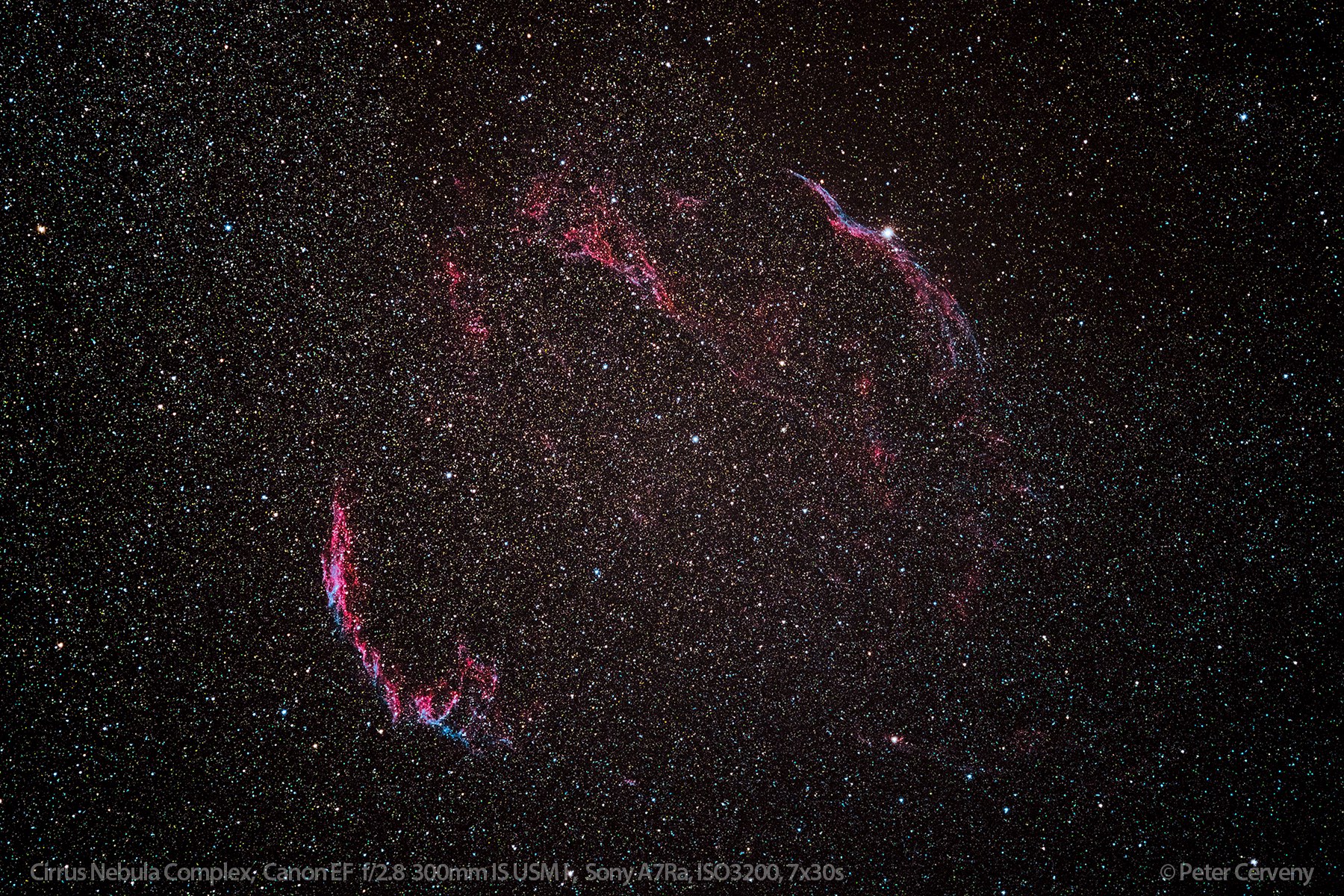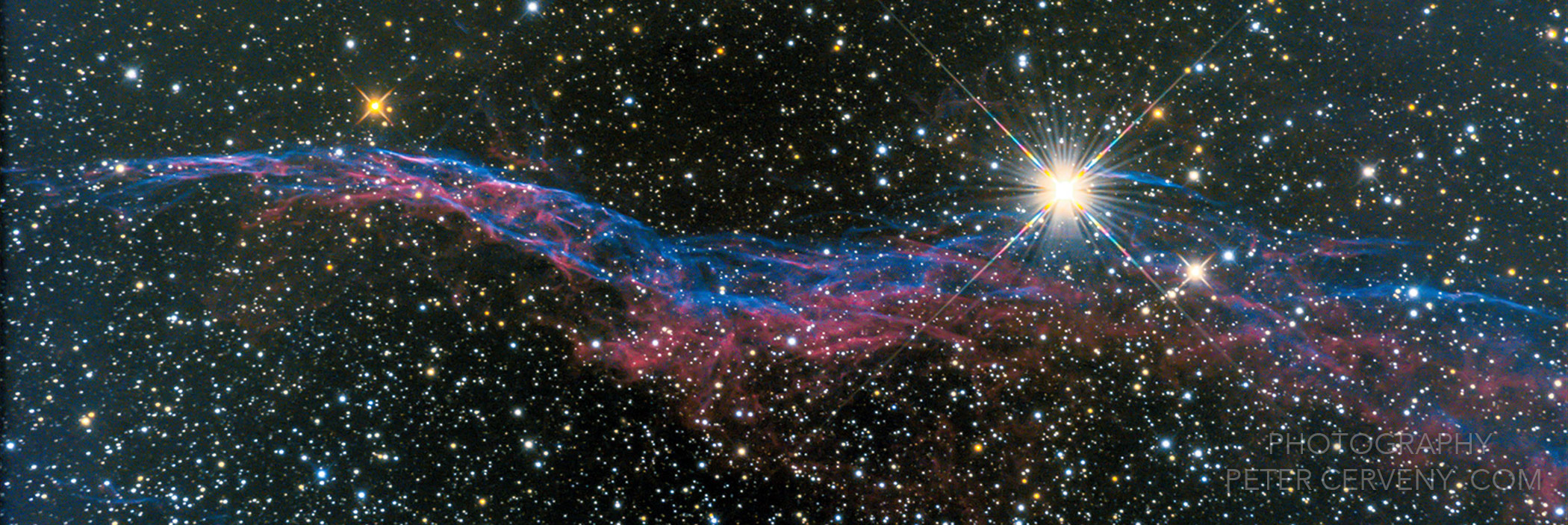
The Cirrus Nebula or Veil Nebula is a cloud of heated and ionized gas and dust in the constellation Cygnus. It constitutes the visible portions of the Cygnus Loop (radio source W78, or Sharpless 103), a large but relatively faint supernova remnant. The source supernova exploded circa 3,000 BC to 6,000 BC, and the remnants have since expanded to cover an area roughly 3 degrees in diameter (about 6 times the diameter, or 36 times the area, of the full moon). The distance to the nebula is not precisely known, but Far Ultraviolet Spectroscopic Explorer (FUSE) data supports a distance of about 1,470 light-years
Components
In modern usage, the names Veil Nebula, Cirrus Nebula, and Filamentary Nebula generally refer to all the visible structure of the remnant, or even to the entire loop itself. The structure is so large that several NGC numbers were assigned to various arcs of the nebula. There are three main visual components: The Western Veil (also known as Caldwell 34), consisting of NGC 6960 (the "Witch's Broom", "Finger of God", or "Filamentary Nebula") near the foreground star 52 Cygni; The Eastern Veil (also known as Caldwell 33), whose brightest area is NGC 6992, trailing off farther south into NGC 6995 (together with NGC 6992 also known as "Network Nebula") and IC 1340; and Pickering's Triangle (or Pickering's Triangular Wisp), brightest at the north central edge of the loop, but visible in photographs continuing toward the central area of the loop. NGC 6974 and NGC 6979 are luminous knots in a fainter patch of nebulosity on the northern rim between NGC 6992 and Pickering's Triangle.
| Object | NGC 6960, NGC 6992, NGC 6995, NGC 6974, and NGC 6979, IC 1340 |
|---|---|
| Constellation: | Cygnus |
| Position: | RA 20h 45m 38.0s DEC +30° 42′ 30″ |
| Apparent Size: | 3 deg |
| Apparent Magnitude: | +7.0 |
| Distance (average) | 1470 ly |
| Photo Datas | |
| Date | 26.08.2016, 21:00 UTC |
| Location | Knottenried/Oberallgäu, 1002m ASL GPS: 47°36’13“ N, 10°11’24“ E |
| Sky darkness SQM-L | Zenit 20.7mag/sqrsec, Object 20.4mag/sqrsec |
| Ground Temp./Air Pressure | 13.5°C /1025mbar |
| Thermal sky temp./weather | -42°C Zenit |
| Seeing | |
| Telescope | Canon f/2.8 300mm L IS USM I |
| Camera | Sony A7Ra mod @ T sensor=16.7°C |
| Expose frames | ISO 3200, RAW 7x30s, 4 darks |
| Total expose |
3 min 30s |
| Filter | no |
| Mount | FS2 |
| Guiding Cam | no |
| Software | DSS 3.3.4, Photoshop CC |
| Remarks | (quick shot). |
C 2016 Peter Cerveny
